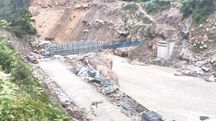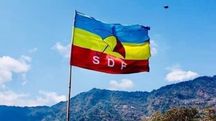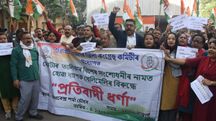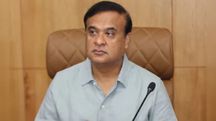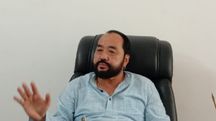Strong connect between Sikkim BJP and residents key to party's growth: Union minister
Khattar's Sikkim visit highlights power and urban development. BJP's grassroots engagement emphasized.

Sikkim Bharatiya Janata Party (BJP) President, DR Thapa met Union Minister of Power and Housing & Urban Affairs, Manohar Lal Khattar, who is on three-day official tour of the state.
The meeting between the two leaders was held in a warm and friendly atmosphere. Thapa welcomed Khattar to Sikkim and thanked him for taking time to listen to the concerns of the people. Thapa raised several important issues that are affecting the daily lives of the Sikkimese people. In response, Khattar stressed that a strong connection with the people is the key to the growth of the party in Sikkim.
He shared that there are many areas where people are facing problems, and he requested the Union Minister to look into them seriously.
One of the main topics discussed was the power sector in Sikkim. Thapa highlighted the need for better management of electricity supply across the state. He explained that some remote areas are still facing irregular power supply, and there is a need for upgrading infrastructure.
Thapa also spoke at length about the importance of hydroelectric power (HEP) projects. He said that these projects are crucial for the future of Sikkim as they can help not only in meeting local needs but also in boosting the state's economy through power generation and sales to other states.
Another major topic during the discussion was the Smart City projects. Thapa pointed out that while some progress has been made, there are still many challenges that need attention. He urged Khattar to help speed up the Smart City works so that the people of Sikkim can enjoy better urban facilities like cleaner roads, improved drainage systems, modern markets, better public transport, and smarter management of city services.
Apart from these developmental issues, Khattar also took some time to review the BJP’s activities in Sikkim. He discussed the current organizational structure of the party in the state with Thapa and other local leaders. Khattar advised the party to focus more on strengthening its base at the grassroots level. He encouraged the local units to engage more with people, understand their problems, and work closely with the communities.
Copyright©2026 Living Media India Limited. For reprint rights: Syndications Today
